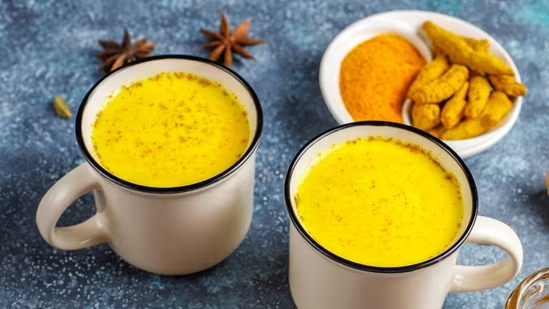

Turmerics benefits are attributed to its active compound, curcumin, which has anti-inflammatory and antioxidant properties. But how safe is daily turmeric?
Turmeric, or haldi, has been used for centuries in traditional medicine and cooking in India – but does this golden spice live up to its reputation for having numerous health benefits? While turmeric is generally considered safe and beneficial, high doses may cause health issues you may not be aware of. Specifically: rare cases of liver injury. Also read | Chef Sanjeev Kapoor shares delicious haldi dessert recipe with ghee, dry fruits if you want to try healthy Indian sweets
Dr Saurabh Sethi, a gastroenterologist trained at AIIMS, Harvard, and Stanford Universities, highlighted this in a September 29 Instagram post titled: Is daily turmeric helping your liver, or hurting it?
While turmerics active compound, curcumin, is believed to have numerous health benefits, Dr Sethi, warned that high-dose turmeric supplements may cause liver injury in rare cases, particularly when taken in very high doses or with certain formulations. Genetics, other medications, and dosage all play a role in this potential risk, he added.
Ways to incorporate turmeric into your diet
Dr Sethi said, “Is turmeric helping your liver, or hurting it? A question I hear all the time in the clinic is simple — but important. Turmeric has been celebrated for centuries, and for good reason. In food —a bout ½–1 tsp a day in curries, teas, or golden milk —it’s generally safe and may even support liver health.”
Should you use turmeric more in cooking or in supplement form?
He added, “But here’s where things get tricky: high-dose supplements. Some studies suggest curcumin can reduce inflammation in fatty liver disease. Yet, I’ve also seen rare cases of liver injury — usually at very high doses or with certain formulations. Genetics, other meds, and dose all matter.”
So what’s the takeaway? According to Dr Sethi:
⦿ Turmeric in food = ‘safe and generally beneficial’.
⦿ Turmeric in high-dose supplements = ‘not always harmless’.
He concluded, “The science is clear: enjoy it in your meals, but be cautious with capsules — especially if you already have liver disease. Do you use turmeric more in your kitchen, or in supplement form?”
There you have it: turmeric in foods like curries, teas, or milk is generally safe, but turmeric in high-dose supplements is not always safe. Therefore, its essential to be aware of these potential risks and consult a doctor before taking turmeric supplements, especially if you have underlying health conditions or are pregnant or breastfeeding.
Note to readers: This report is based on user-generated content from social media. HT.com has not independently verified the claims and does not endorse them.
For clarifications/queries, please contact Public Talk of India at:
+91-98119 03979 publictalkofindia@gmail.com

For clarifications/queries,
please contact Public Talk of India at:

